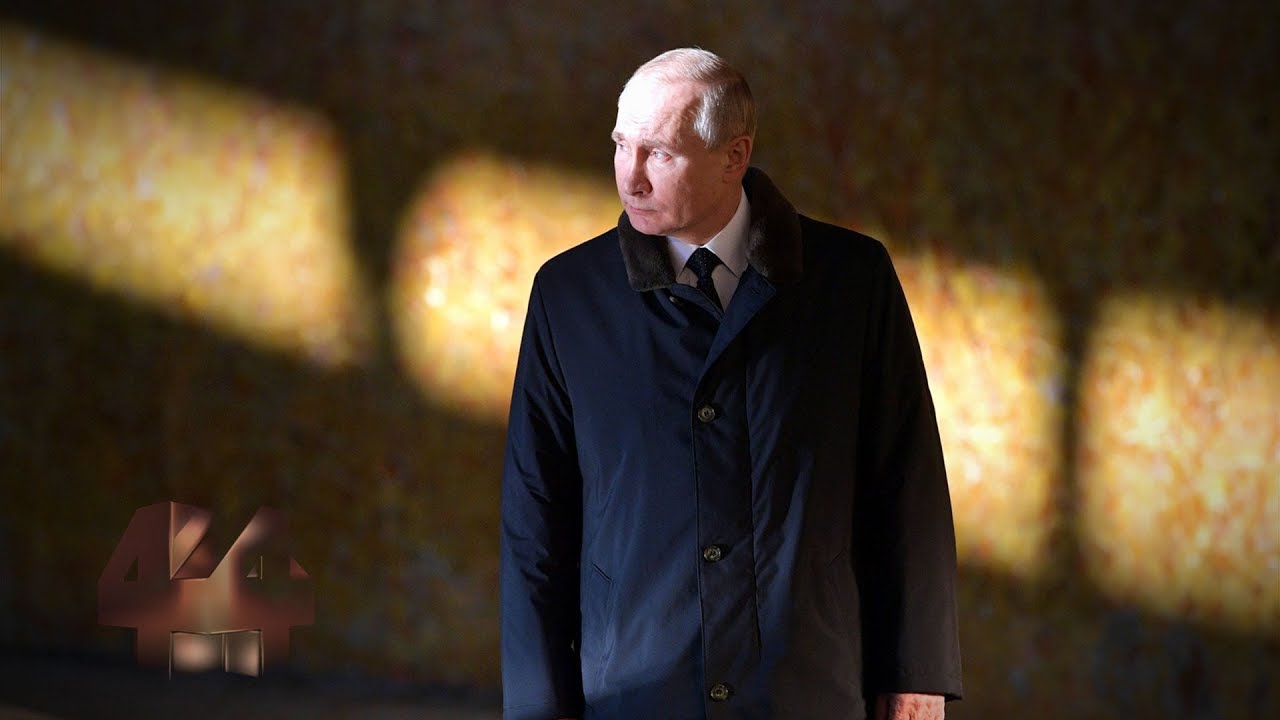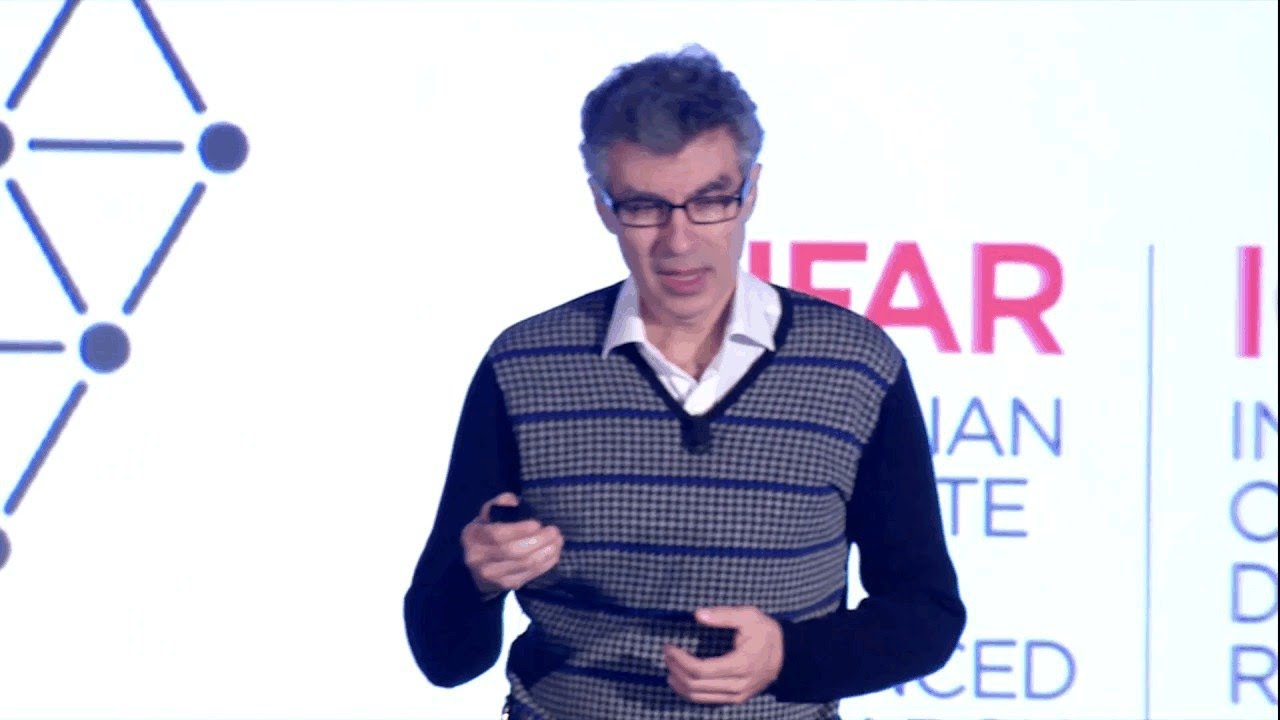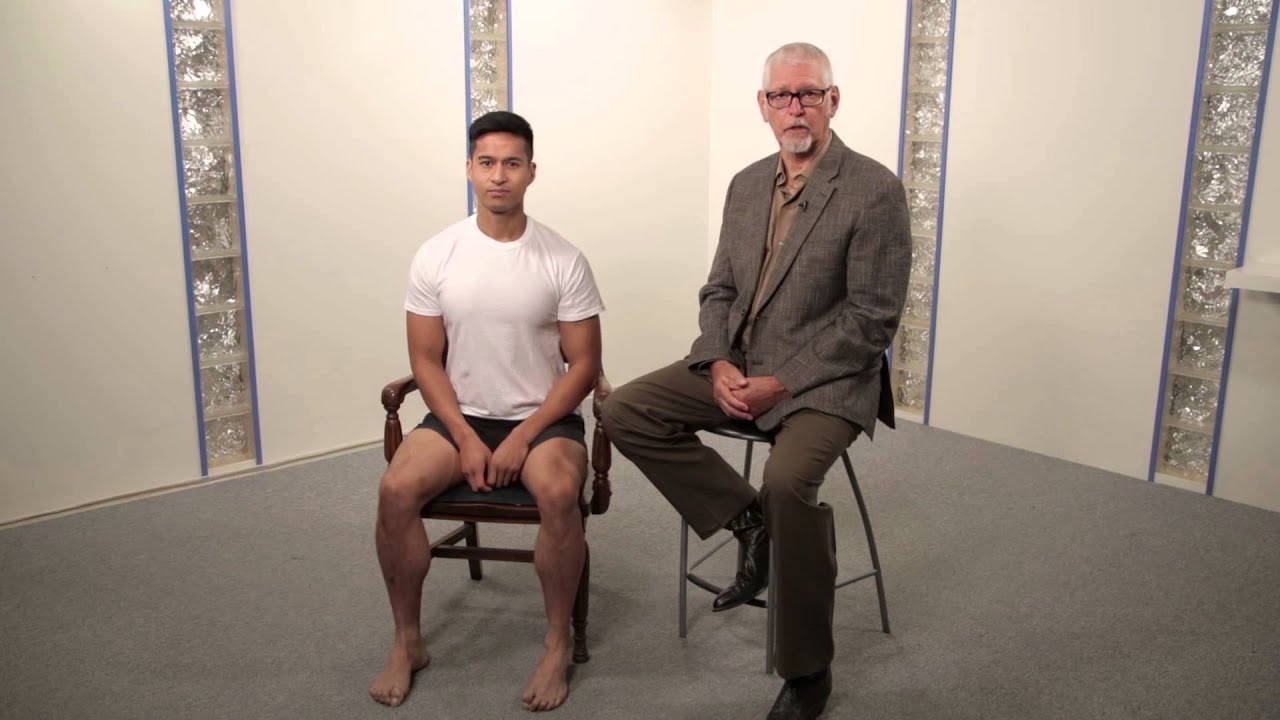VideoLecturesChannel
VideoLectures.Net
View the talk in context: http://videolectures.net/turing100_penrose_mathematical_mind/
View the complete Alan Turing Centenary Conference Manchester, 2012: http://videolectures.net/turing100_conference2012_manchester/
Speaker: Sir Roger Penrose, Mathematical Institute, University of Oxford
License: Creative Commons CC BY-NC-ND 3.0
More information at http://videolectures.net/site/about/
More talks at http://videolectures.net/
Following Alan Turing’s ground-breaking 1937 paper, which introduced his notion of the Universal Turing machine, he suggested, in 1939, generalizations based on ordinal logic and oracle machines, these being apparently motivated by attempts to model the mathematical mind in a way that could evade the apparent limitations presented by Gödel’s incompleteness theorems. In this talk, I introduce the idea of a “cautious oracle” as a more human version of Turing’s oracles. Nevertheless, I show that even this fails to capture the essence of the full capabilities of our understanding.
I raise the issue of possible physical processes that would appear to be needed in order to circumvent these Gödel-type restrictions. At the end of the talk, I report on some startling new experiments, which appear to point to new insights into the possible physical processes underlying conscious brain activity, and I speculate on how this might relate to the power of human understanding.
Source




Understanding is the ability to judge that the mapping between reality and the abstract model of reality is sound.
Why do people think consciousness is so wierd? Its equally wierd to ask why any arbitrary object exists, well, its quantum states all the way down, so what?
to believe is to know you believe to know you believe is not to believe
A Rule can never be trusted because it's a relative measure of timing rates forming a dynamic constant that shifts in relationships with the universal connection.., another version of "incompleteness".
Eye really enjoy,,, sir roger,,,
AH YES PENROSE
The audience questions are just embarrassing. Smh
We have electrical activity relative to the structure of the brain forming chemical changes or reactions. Chemical energy is stored in the bonds that hold the atoms together. When the bonds form and break we have the continuous exchange of photon energy with the future unfolding relative to the electrical activity and the structure of the brain. Conscious awareness is formed by this electrical potential that is always in ‘the moment of now’ in the centre of its own reference frame. It is this personalization of the brain being in ‘the moment of now’ in the centre of its own frame of reference that gives us the concept of ‘mind’ with each one of us having our own unique personal view of the Universe and the uncertainty of life. Consciousness is always in the forefront of creation or the creative process therefore each individual is able to look back in time in all directions from their frame of reference at the beauty of the stars. It is a common believeth that we live and die over a period of time, but in this theory the atoms of the periodic table form their own space time as part of a universal process of continuous creation. The flow of Time as a process of continuous energy exchange and our consciousness as a continuous stream of unbroken ever-changing flow of ideas, feelings! dreams! hopes! perceptions! and emotions are interlinked. Good video, thanks for sharing!!!
He was doing well until he got on to the 1939 paper. Then he just started pointing at quantum mechanics and appealing to ignorance.
The human brain employs quantum computation (doing many functions at the same time) producing consciousness and awareness over evolutionary scale, enabling us to do mathematics, just like a tiger chasing a deer calculates how fast it should move/run or what angle to take while chasing or to accelerate or decelerate.
When Turing solved the halting problem, he inadvertently incorporated 'understanding' into his computing machine.
To be conscious or be aware involves being mathematical, and in that sense is conducive to selection.
This is a response and elaboration on the ideas proposed by Sir Roger Penrose in the lecture ‘The Problem of Modelling the Mathematical Mind’ given at the Alan Turing Centenary Conference in Manchester, 2012. Here he clearly demonstrates what mathematical understanding is by combining his own understandings with the good work of both Alan Turing and Kurt Gödel. He also goes on to describe Consciousness as having something to do with this particular type of Mathematical Understanding G(R) in combination with intelligence and awareness. He states that this usage of words seems natural and integral to consciousness, yet to him the words intelligence and awareness remained undefined and not yet directly correlated with mathematical understanding. Here in this paper I have provided not only an elaboration and definition of both intelligence and awareness but also a unifying framework for the utility of both the Universe and Human Beings.
https://drive.google.com/file/d/0B6EZh8Iqx5npRzdLblJ0d0t2U2M/view?usp=sharing
It’s not hard to construct a thought equivalent to no computation. For any x, say though t is about x iff t asserts ‘there are some P’ and x is a P. Call a computation c normal iff there’s no thought about c and equivalent to c. Consider thought T asserting just ‘there are some normal computations’. T is exactly about all normal computations. Assume for a reductio that T is equivalent to computation C (then, of course, there's no thought with other content that's equivalent to C). If C is normal, T is about C and C is not normal. If C is not normal, T is not about C and C is normal. Contradiction in either case. Hence, T is not equivalent to a computation. We say T diagonalizes out of all computations. (From Luna and Small: http://philpapers.org/rec/LUNIAC)
Oddly enough, Gödel's let-out makes little sense. We need not know that a particular R is the one representing human intelligence in order to be able to believe G(R): we only need to meet R and trust it. What could make it impossible for us to meet that R? And if we meet it, how could we not trust it if it consists of the same principles we use in thinking? R could be very complicated but it's sure finite, so that there's no logical impossibility for us to peruse and trust it.
0:11:29 Note that for Gödel's theorem to apply, R must be consistent. So, if R is inconsistent, there's no G(R) which we must believe and R can't prove, because an inconsistent R would prove every sentence in its language, also G(R).
So, he's assuming we can't believe in the validity of an inconsistent system, and this seems empirically false: Frege, Church, Quine… proposed inconsistent systems.
The point could be, however, that no inconsistent system can represent human mathematical intelligence. On that asumption, for each R purportedly representing human intelligence and which we trust, there would be a G(R) (e.g. 'R is consistent'), which we can in principle believe and R can't, and this would show R doesn't represent human intelligence after all.
So, if an R exists that represents human intelligence, then it is inconsistent or unable to be trusted by human intelligence. I admit both alternatives seem unlikely.
We don't know if quantum mechanics is ultimately computable. Our current understanding and interpretation is incomplete. Penrose mentioned that Schrodinger himself, by way of his famous cat, understood his equation to say things that are counterintuitive, even absurd.
Modern lights at the cutting edge like t'Hooft believe, as Einstein, that Q.M. is incomplete (Bell's Theorem notwithstanding) — or that it is an emergent phenomenon of something more fundamental. If it's determined to be computable, that still doesn't address the Godelian limitation on formal systems. It may be that our language (or any Godel-motivated expansion) is unable to fully characterize physics. If that's the case, then modeling the brain with language (i.e., programs) will always fall short. Ultimately, the gap may not be significant in practice, but that remains to be seen.
Another point: It's amusing to see people back-peddle on claims of quantum coherence in biological systems after recent experiments have proved it's existence. This was their biggest criticism of Penrose, and they reveled in sneering him into the crackpot corner over it. Now they completely ignore this aspect and claim that already known mechanism are enough to explain consciousness, although they haven't quite worked that out yet.
For me, I don't know. I do know that before Godel, if there were mechanical theorem provers (computers), they could never have proven Godel's result (they would have been happily working their way through Russel and Whitehead's Principia forever). But Godel transcended that by expanding the language, rules, and perspective sufficiently. The real question is: How was that done? If you can't answer that, what exactly are you modelling?
Issues:
1. Penrose: Mathematicians aren't evolutionary logical.
Observe infants (admittedly, he may not have any). They vigorously test reality, test their perceptions, test their understanding. Discover new functional methods. They've got immense topological, tensor, curve derivative, and other "math" curiousity and intuition. Turing didn't observe kids enough either.
2. Hercules vs Hydra:
velocity
if hercules cuts hydra heads faster than heads grow back, he wins.
if heads grow faster than hercules cuts, he doesn't.
density
if heads grow on base that doesn't grow, they will get too dense for new heads to fit.
if heads shrink in size to fit on base, they will get so small you can't see them.
(Penrose's proof seems to be they'll shrink to zero)
out of the box
if hercules cuts the base, all heads die.
3. Penrose's cautious oracle doesn't do probability.
Caution implies care for uncertainty. Probabilistic.
Alright, calm down, buddy haha!
Thanks for the suggested video.
Krauss and tegmark and Dawkins, all clever little boys who make fools of themselves by being silly with their intelligence.
Posing schoolboy arguments, they were doing alright until they ran into adults who didn't fall for it.
See Lennox vs Dawkins. Theres a few videos here.
Those guys only sound clever when they talk to pseudo atheist college kids with unreconciled parental conflicts facing puberty.
You'll like the book.
What a coincidence! I just bought the book (before seeing you reply)!
Will definitely look into it. Lawrence Krauss…yeah, call me judgemental, but I do not have an awful lot of respect for him.
But I wouldn't call him a fool. Anyway, seems like a massive book; I'll get in touch with you later, hopefully.
You might like to read his popular paperback," The emperors New Mind" , the book that started it all. He destroyed artificial intelligence based on classic computers with a sweep of the pen.
His books are very accessible, I quit school at 15.
Lawrence Krauss is a physicist, atheist, who hates the idea.
He called it nonsense, the brain is too warm and wet he claimed.
There are lots of them and they all look like fools now.
Even with a working model of quantum consciousness, it still doesn't explain consciousness itself. The so called hard problem.
I like the idea that it is an emergent property, its more than the sum of its parts (processes).
To me… the mind taps into the universe like a radio.
A radio doesn't generate any music, it merely receives it.
Haha! Roger Penrose is on a whole different level. Atheists on yt have never encountered people of this kind. I presume there are atheists, out there somewhere, who fully grasp the depth of his idea and object to it…
I, for one, have much to learn.
Thanks for the info.
There may be holes in the theory, but I presume his (audience member) point was that just like every every othe rgap in Science (historically), the mind, being a result of physical phenomena, can be modelled: if not now, at some point in the future and that it cannot be a dead end from this perspective.
Skepticism is not open minded or unbiased. When it involves atheism, then ego will fight for its life, to the point of making people look very stupid.
Penrose's approach eliminated what wasn't possible first, that left QM as the viable possibility.
In his second book he remarked how much of the critique was vicious and personal, not scholarly or scientific.
He's just following the evidence, something others could learn to do if they allowed themselves free will.
The most vocal arguments were " the brain cannot produce quantum coherence because the brain is too warm and too wet"…from Krauss and Tegmark.
Recent discoveries show plants use QM for photosynthesis, so much for too warm and wet.
Penrose is not a theist but he doesn't allow atheism to cloud his common sense.
Krauss and Tegmark will have to eat their own rash words.
"if the fundamental laws of physics can be modelled, then the human mind can be too"
Penrose points out very clearly there are gaping holes in quantum physics, holes that not reconcilable. He states very strongly these gaps cannot be argued away so Q physics is incomplete as yet.
The fundamental law of classical physics cannot account for consciousness.
Its not that its unlikely, its not possible.
What? no atheists arguing "it can't be true" ?
I was there in Manchester to watch this lecture! 🙂
I did feel that the audience member's argument that if the fundamental laws of physics can be modelled, then the human mind can be too, was pretty strong. However, I later came to know that Penrose has some strong views about consciousness.
It was a great lecture!
Simply good..
It's always a pleasure to hear from Professor Penrose